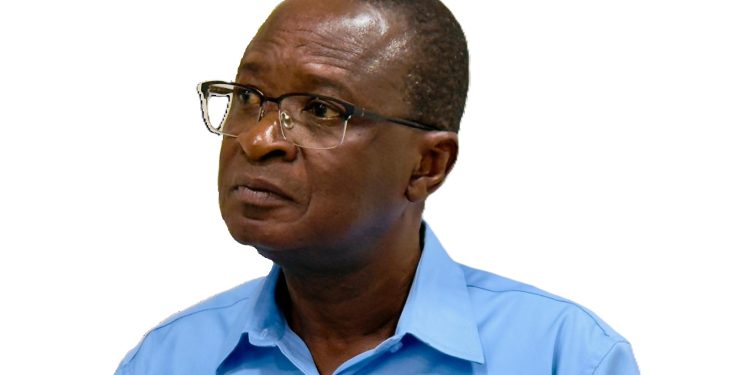New Brookfields Hotel, Freetown – 25th September 2025
The Statistician General and Chief Census Officer for the 2026 Population and Housing Census, Mr. Andrew Bob Johnny, delivered a powerful presentation at the 7th Interparty Dialogue Committee (IPDC) meeting organized by the Political Parties Regulation Commission (PPRC).
Mr. Johnny provided updates on the ongoing census process and emphasized the national importance of the exercise. He described the census as a “momentous national endeavor” that produces vital demographic and socio-economic data used to guide evidence-based policymaking, government programming, and equitable resource allocation.
“A census serves as a measurement tool for evidence-based decision-making, a basis for resource distribution, and a benchmark for monitoring change over time. We simply cannot plan effectively as a country without credible census data—it is the sine qua non for national development over the next decade,” Mr. Johnny emphasized.
Committees and Governance Structure
He informed the IPDC that several specialized committees have been established to guide and implement the census, including:
- The Advisory Committee – comprising political party representatives to advise the Chief Census Officer.
- The Technical Committee – responsible for designing questionnaires and census instruments.
- The Publicity Committee – focused on raising public awareness and understanding.
- The Census Secretariat – the operational hub managing all aspects of the census.
Cartographic Mapping and Timeline
He announced that national training for cartographic mapping began across all regions on 22nd September 2025 and will run for 10 days. This will be followed by the deployment of field staff who will map and delineate enumeration areas.
“This phase is the bedrock of the census—it involves dividing the country into small, manageable units that each enumerator can cover. It’s a critical step that will take about 6 months,” Mr. Johnny explained.
He further disclosed that the pilot census—in line with UN standards—will be conducted in December 2025, exactly one year before the main enumeration in December 2026.
Support and Funding
Mr. Johnny commended the Government of Sierra Leone for its support in procuring key technologies and equipment including ESRI software, GeoApp, satellite imagery, vehicles, laptops, tablets, and Starlink internet system. He revealed that the government has already committed $24 million to the census effort, with a funding gap of $13 million remaining.
He also acknowledged UNFPA for leading donor coordination efforts and called on donors, private sector actors, and development partners to contribute financially or otherwise to the success of the census.
Inclusivity and Stakeholder Engagement
Mr. Johnny emphasized that Stats SL is implementing an extensive advocacy and publicity program, from national to grassroots levels, ensuring inclusivity, transparency, and the involvement of all stakeholders.
“The questionnaire has been simplified for ease of use by both enumerators and respondents, and we are committed to engaging all stakeholders throughout the process,” he concluded.
Political Parties Respond
Mr. Leonard Balogun Koroma, representing the All People’s Congress (APC), commended Stats SL for its transparent approach and continuous engagement with political parties.
“We are impressed with the tremendous progress Stats SL has made and the fact that we’re being carried along,” he said, while urging the agency to inform parties earlier to allow fuller participation in its activities.
Mr. Sidi Yaya Tunis (also of the APC) encouraged all political parties to be more supportive of the census:
“-We must be the ones to help Stats SL deliver a credible census. Mobilizing our people and avoiding unnecessary criticisms is key_.”
Mr. Ahmed Saybom Kanu, representing the Sierra Leone People’s Party (SLPP), stressed the importance of engaging local authorities and paramount chiefs, and reminded all present that:
“The census is not a political exercise—it is a tool for national development.”
Representatives from the All Political Parties Association (APPA) and other parties also echoed their support and shared constructive feedback during the dialogue.
Credit: Stats SL Comms & PR Unit










